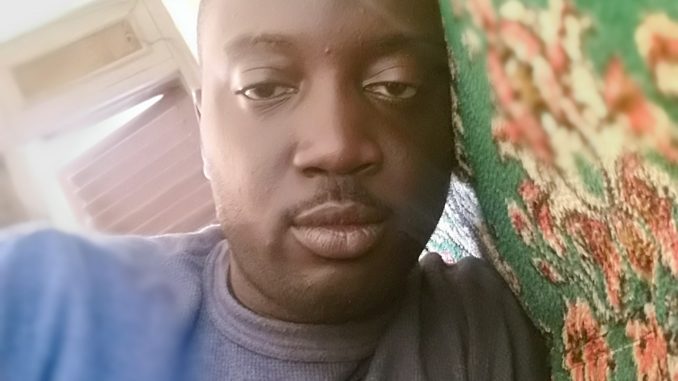
After spending more than two hours at the Ebibeyin Police Station that evening, it began to dawn on me that I could remain detained right there till the next day. I had been detained by an overzealous officer who wanted to impress his superiors he is hardworking and of course, have a actions he could cite for a pay rise during his appraisals (if they ever do such things in the police force). The Police station was like any other police station in typical sub-Saharan Africa. People flocked in and out with different problems, complaints, visits to loved ones and several other reasons I did not know. Many were coming for relatives or friends who have been accused of one crime or the other. Majority of those who were arrested are immigrants who do not have their required papers or documentation and also do not have enough money to pay the outrageous bribes requested by the police.
Being at that Police Station that day was quite an experience. I learnt that life is the same everywhere even though languages may differ. A few of the police officers were humane and friendly when they talk privately with you but when a potential suspect shows up, they transform themselves into beasts in order to take advantage of the situation for a good extortion. During my stay with them for almost three days, several persons walked in to either visit or bail loved ones who were in jail. They also made several arrests. Knowing how I got to be there, I knew so many of the arrested people might be innocent of the crimes they were accused of.
One major challenge I faced while at the station was my inability to comprehend the local Feng ascents. Even if someone spoke English or French with this ascents, I would strain my ear and listen carefully to understand what exactly is being said, unfortunately, most people there spoke Spanish which happens to Up till that moment, I did not know I could understand anything Spanish. Surprisingly, at some point, I noticed that my faint understanding of Portuguese helped me follow a few conversations especially when someone who was not Feng (a local person from around there) spoke without the Feng ascent. The Feng ascent made their Spanish sound so different. On the other hand, the Spanish I heard Spaniards speak on the local television was too fast that I could still not understand anything.
The very first scene I saw there at the police was of a young man who was arrested and was brought to the police station. According to a instincts, he was accused of hit and run driving but he was trying to prove to everyone present he was not running. They at some point molested and beat him up to an extent I wanted to intervene but again, both of us were in the same shoes. After those who brought him there left, he called a few people who I believe were his friends or family to bail him.
Also, a lot of people were arrested and brought to the police station. Cases involving people who are citizens of Equatorial Guinea were most times easier to handle but those involving foreigners were more difficult and took time and most time they ended up in the jail until someone comes to pay for their release.
The police station is a block with several offices and a jail room. It had a number of offices as well. The particular one where I was asked to stay was the reception. Inside the reception was a metal door which served as the entrance into the police cell or jail. Initially in my curiosity, I had wanted to go inside to see what it looked like but I never had the opportunity till the third and my last day there. My first time to enter was after the second day, I had requested one of the officers that I want to take my bath being that it I have gone three days without taking a bath. I eventually regretted ever taking my bath there because the situation of the toilet and bath inside cell was horrifying. It has long ceased from being a place meant for bathing to one where people defecate indiscriminately. One of the prisoners was very kind enough to come in to help me hold my cloths and the torch light which illuminated the dungeon. I lack words to describe what I saw inside there.
The police officers in the prison there were kind enough to allow me to use my phone during the detention period except for a around two hours I had to spend inside the jail before I left. With the gravity of what I was accused of, the normal thing would be to confiscate my telephone and any means of making contact to my ‘cohorts’. God so kind, at that time, I had never had time to go buy a local sim card but the sim card I had bought in Cameroon was still working and the connectivity was much faster and cheaper than the one in Guinea. Unfortunately, I ran out of data at one point but I called one of my kinsmen from Nigeria who lives in Cameroon. He quickly helped me top up my data. I will forever remain grateful to Ebuka Udor for this gesture – this is because even though I had money to buy the needed airtime, it was practically impossible to buy at that time coupled with the fact I was detained – a police officer I even asked to get some for me told me the vendors would have closed around eight o’clock in the evening when I made this request. A few other friends who I called before I called Ebuka even though they promised to send me the airtime, did not. Having an internet connection helped me to remain positive during the experience.
The police station runs a 24-hour service. There is always someone on duty and people arrive frequently to settle dispute or even report cases. There were two very notable cases that I witnessed that were of interest. The first was two ladies who from the way they were dressed and a few conversations that they were involved in, I concluded they were commercial sex workers or what we call ashewo in Nigeria. The two ladies argued and argued and afterwards, one of them was detained, later to be released a few hours. What brought them there and what they were arguing around 3am in the morning till around 5am in the morning remains a mystery till date.
There was another situation of a Senegalese gentleman who came to make a report about his neighbor whom he suspected was responsible for some of his belongings that got missing. It was this same guy that made me understand I could comprehend some Spanish. He spoke his much slower and clearer Wolof accents that it sounded more like he was speaking Portuguese. He complained that he left his door open and then came back to the house to find out a lot of his stuffs have disappeared. He checked his neighbors’ room to find out he was still there and he was there before he stepped out. The whole scene was a sympathetic one because this gentleman in question who am sure would be up to thirty years wept like a five-year-old kid while making this report. A few hours later, this same guy and some policemen returned back to the police station with two of the suspects who were later sent to jail. Not sure I followed up the end of the story.
There were several others who were arrested for very minor altercations but were brought to the police station because they were not properly documented. There was this case of a guy from Southwest Cameroon who was arrested. He neither spoke French nor Spanish. Seeing he spoke only English, I asked him what it was that brought him there and he explained that he finished work late and could not get a vehicle back home. When he was walking home, a group of policemen ran into him and at that point, he did not have his papers with him and because of that, they had to arrest him. He was fortunate I had some airtime on my phone which I borrowed him to call his boss who came that evening to secure his release.
Food there was just basically to be sure I had something eaten. There was a canteen in the police station and I went there to eat several times. The first two times I ate were food purchased by some police officers who went to buy from the locals. Food there was a bit expensive compared to what it was in Cameroon. In Cameroon for instance, 500 CFA to 1200 CFA would get you a good meal but here, I paid from 1000CFA to around 2000CFA for the same quantity and reduced quality. Although when I left detention, I was able to find a few places in town that sold food cheaper and had dishes I considered better.
There was also the sad story of a 13 year old boy who was arrested and kept in jail for attempting to steal a plastic basin from a shop. I had really wanted to help secure his release but I could not do much. When I was released, I found out I was in a hurry to leave first, was because I wanted some rest and secondly was that some of the police officers there wanted me to give them some money which I was not ready to do then. I wish I did something earlier for the little boy.
On the second day at the detention center, we woke up to the news of the crash of the Ethiopian Airlines Flight 302 which was flying from Addis Ababa to Nairobi. The sad story somehow got me to see some positivity in my arrest. What if something bad was bound to happen if I were not here. That actually gave me reason to see there could be some advantages in delays. Life most times does not unfold the way we plan it. With patience and a good heart, we can surmount all those challenges. I was able to articulate a few things I had personally learnt from the delays and my travels:
- The language of kindness is understood by anything alive. Speaking it fulfills you as a person, you can never be a talkative speaking it.
- Make the best out of life wherever it puts you. Complaining and grumbling will not give you any happiness. Deciding to be happy does.
- Delays are good. Accept it cheerfully when it’s not your own making. There’s always another day.
- Life is very transient. The people you meet and fall in love with are gone the next moment. Learn to move on.

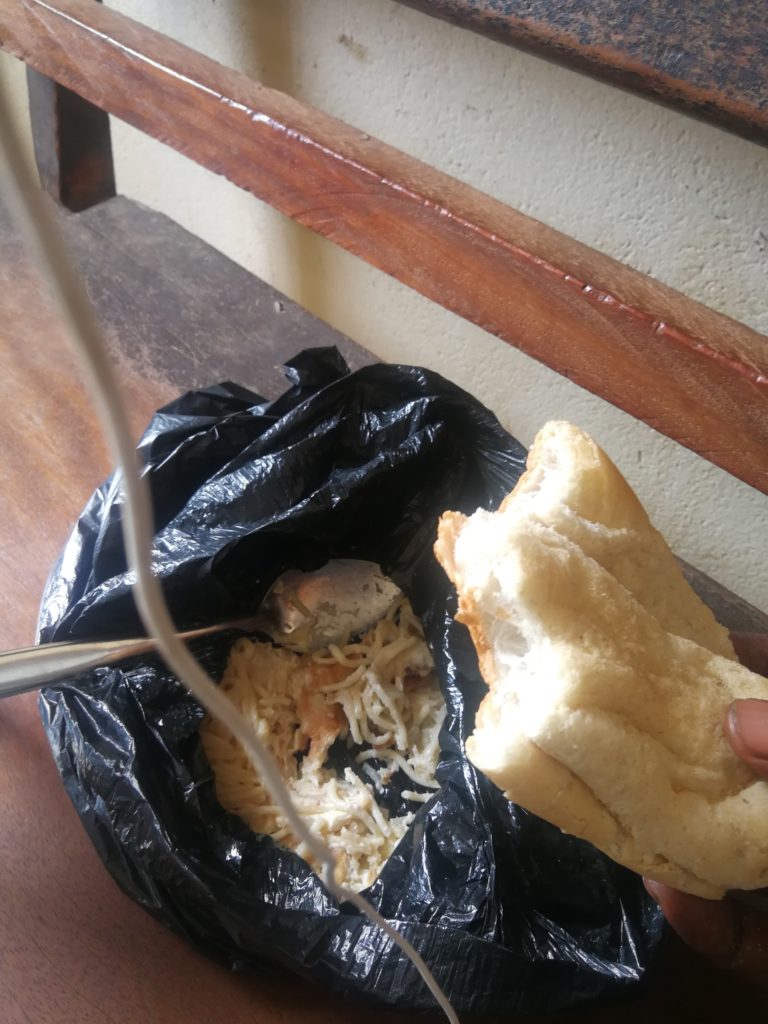
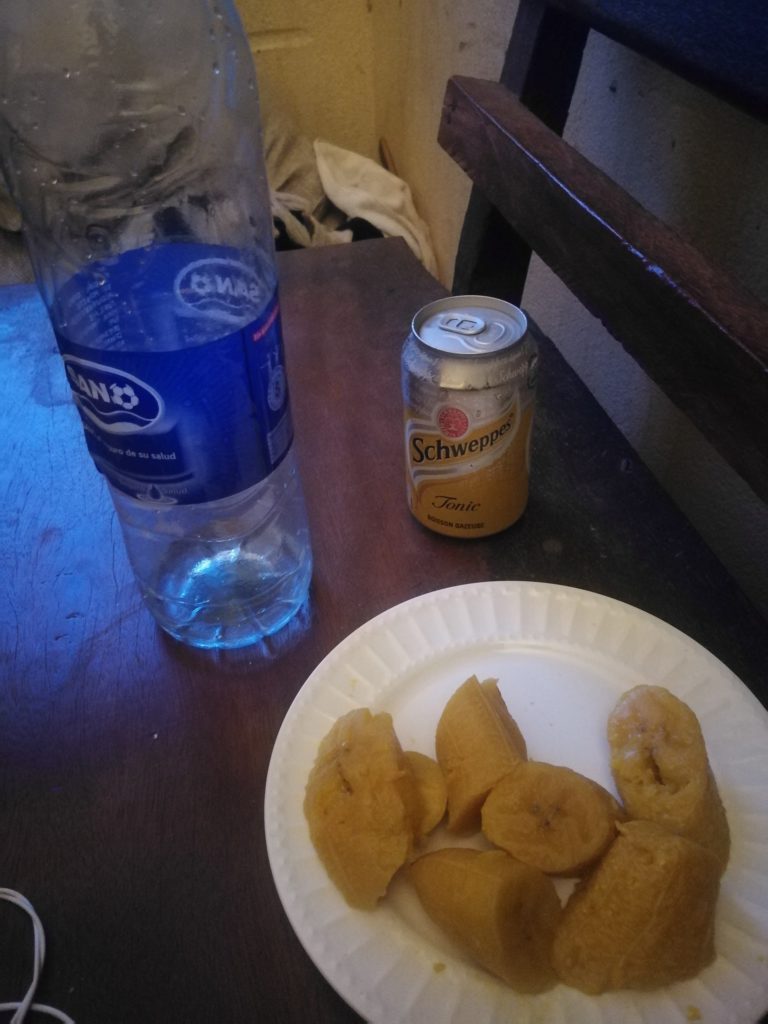
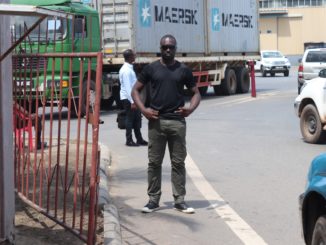

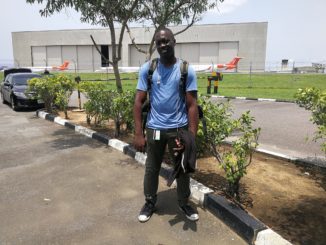
Be the first to comment